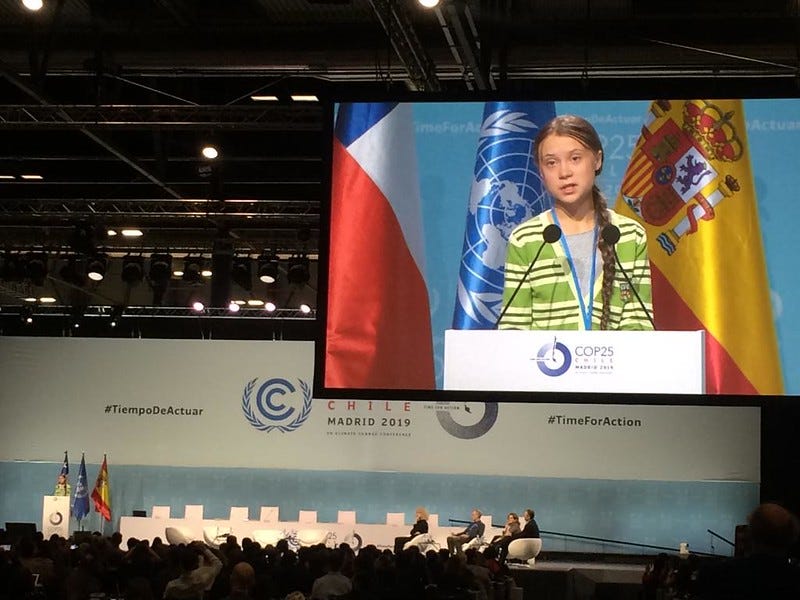Greta meets Germany's Merkel on two-year anniversary of Friday school strikes
Thunberg and other activists claim, 'we are still in a state of denial.'

By Elizabeth Hearst
(Elizabeth Hearst is based in Ireland and a graduate of Dublin City University's Masters of Journalism. She’s interned with the Racing Post — the UK and Ireland's top horse-racing newspaper — and has worked for the National Broadcaster RTE at the Irish General Election).
DUBLIN (Callaway Climate Insights) — Swedish environmental activist Greta Thunberg and German Chancellor Angela Merkel met in Berlin Thursday, with Merkel getting some forthright views from Thunberg and fellow climate activists Luisa Neubauer, Anuna de Wever and Adélaïde Charlier.
The environmental campaigners had delivered their critique of European legislators in an op-ed piece published in The Guardian newspaper this week. The group from the “Fridays for Future”’ climate movement vowed to tell Merkel that she must “face up to the climate emergency,” saying it was particularly important as Germany now holds the presidency of the European Council.
Thunberg said she appreciated being given the opportunity to talk to Merkel for 90 minutes, more time than the chancellor spends with many world leaders.
“That really made it possible to have a more in-depth, deep conversation, which we really appreciated,” Thunberg told The Associated Press.
The AP reported that Charlier said Merkel had assured the group that she did not support an EU trade agreement with the Latin American Mercosur bloc that opponents say would be harmful to the environment and human rights. Merkel’s office didn’t immediately respond to a request for confirmation from the AP.
The group delivered an open letter published in July which detailed their demands and included 125,000 signatures including Leonardo Di Caprio, Greenpeace and Malala Yousafzai.
The group believes that “we are still in a state of denial” and explained that “the climate and ecological crisis has never once been treated as a crisis.” They warn that “the gap between what we need to do and what’s actually being done is widening by the minute … effectively, we have lost another two crucial years to political inaction.”
Thursday marks the two-year anniversary since the first school strike for climate change, and the group concedes that a lot has happened since. “Many millions have taken to the streets to join the decades-long fight for climate and environmental justice.”
The demands from the group include halting all fossil fuel investment and subsidies, divesting from fossil fuels, making ecocide an international crime, the designing of policies that protect workers and vulnerable, safeguarding democracy and the establishment of annual binding carbon budgets.
The group added that what they are demanding may “seem unrealistic,” but they warn that “it is much more unrealistic to believe that our societies would be able to survive the global heating we’re heading for.”
The European Union will propose new measures to raise the EU’s climate target for 2030 next month, following the publication of an “impact assessment” study that will give an evaluation of the costs and benefits of increasing the objectives in line with the bloc’s bid for carbon neutrality by 2050.
The Paris Agreement's long-term goal is to keep the increase in global average temperature to well below 2°C. above pre-industrial levels; and to pursue efforts to limit the increase to 1.5°C. It will require a radical overhaul of the current practices and EU leaders are expected to debate whether they should aim for a 50% or 55% reduction in carbon emissions below 1990 levels. Should the EU wish to limit global warming by the lower 1.5℃. figure, this would require a 60-65% reduction.
